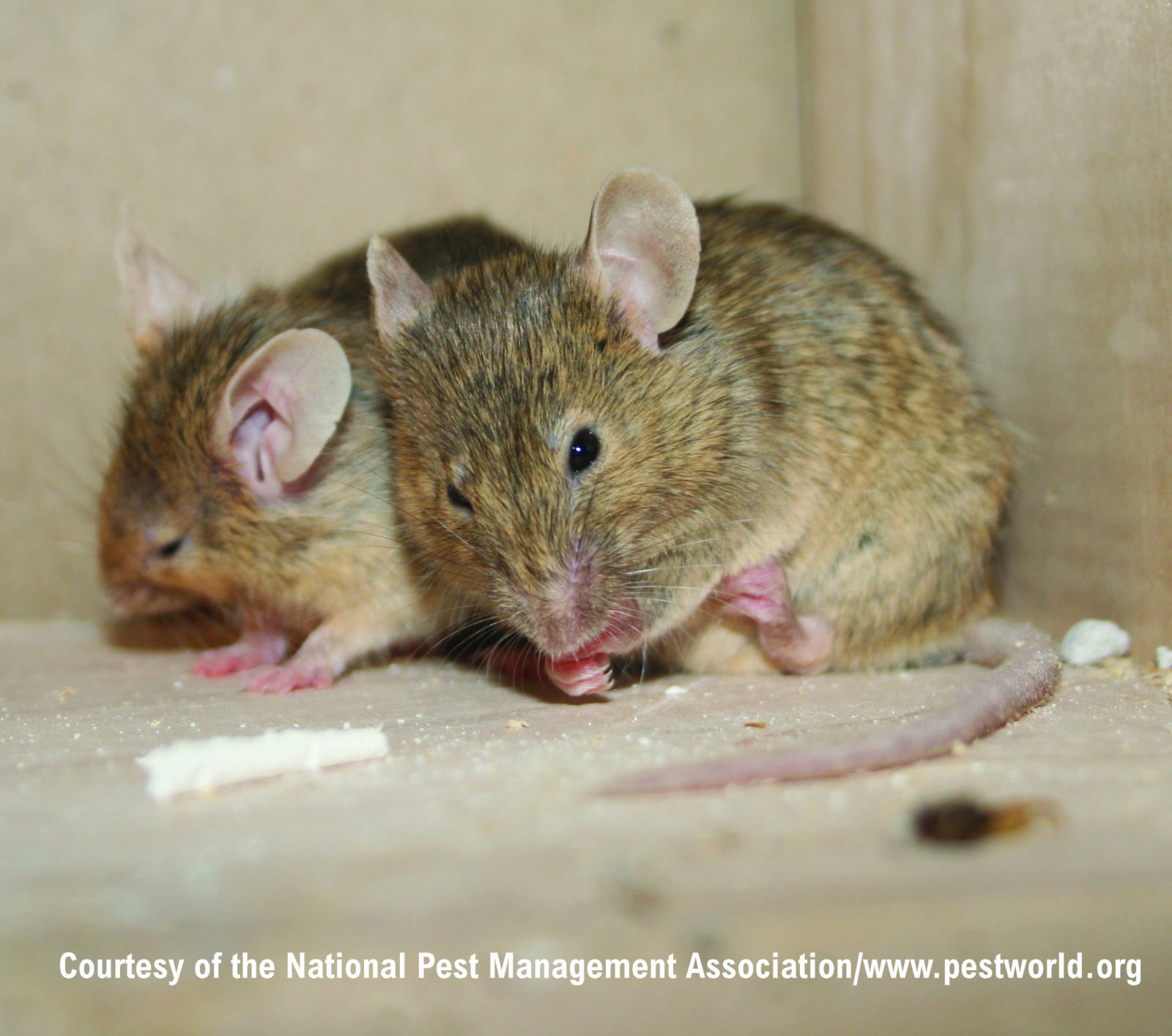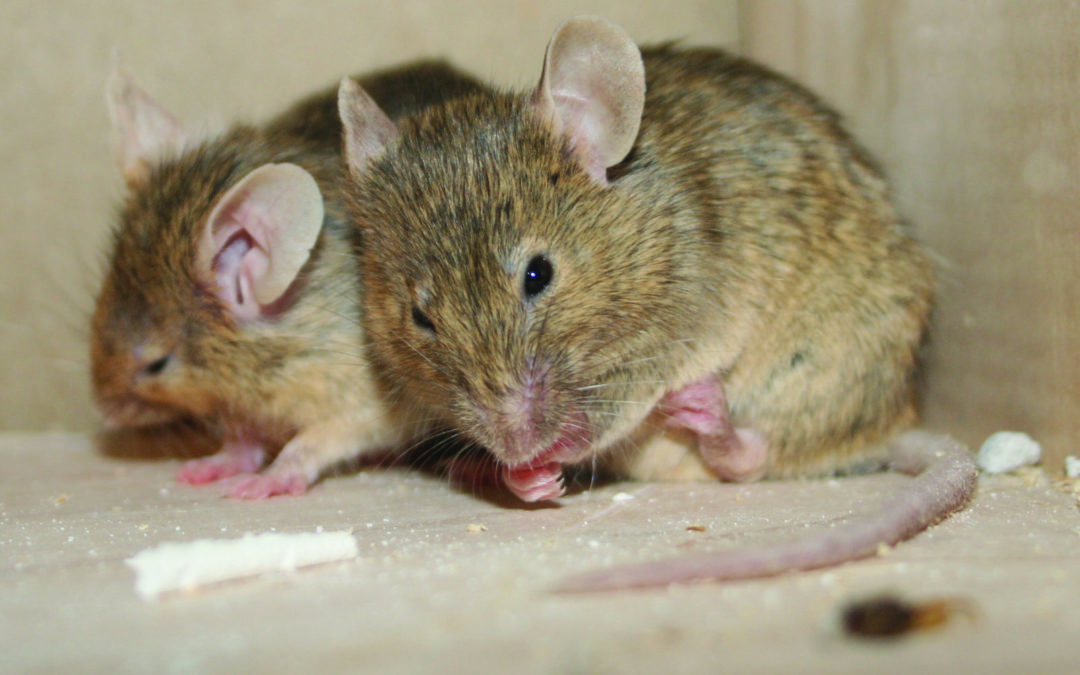
Structural Damage
Mice, like all rodents, are chewers. Kind of like fingernails, rodents have teeth that are growing constantly and need to be filed down. Their instinct is to gnaw on materials like wood, cardboard, rubber, and fabric, because it helps to keep their teeth ground down to a normal length. So when they begin living in your attic, your walls, or your garage, everything chewable in those spaces is at risk. That means the wooden beams holding your house together, the boxes of valued family memories, and even your furniture are all subject to damage. Mice also tunnel through insulation and use it as nesting material, which completely nullifies its ability to keep the temperature in your house regulated. Last summer, ABC Wildlife Senior Technician Andi Szyszko serviced a home where mice had infested an unfinished basement. He shared a video with me, which you can see below. The plastic covering the insulation gives an excellent view of what rodent tunneling and burrowing in walls and attics can look like.
Electrical Damage
In addition to gnawing on wood and cardboard, mice are notorious for chewing through electrical wiring. At ABC, we’ve seen instances where mice have taken out the cable, chewed through the wires for outdoor lighting and doorbells, and caused power outages. There’s really no end to the amount of electrical damage they can do. I was talking to ABC Wildlife Senior Technician Shane Mrozek recently who was called out to a townhome where the resident had all of his smoke alarms go off at once in the middle of the night. When the homeowner began removing the alarms in order to silence them, he found that the wires on one of the alarms had clearly been chewed and urinated on by mice. Shane pointed out to me that this wasn’t just an inconvenience for the homeowner, it was also a serious fire risk since there was insulation directly on top of exposed wire. When investigators are unable to determine the cause of a fire, it is estimated that 20% of those fires are actually due to mice.
Feces and Urine
Mice defecate and urinate constantly, especially when they’re moving. Practically speaking, this helps create scent trails for them to follow since mice have terrible vision. But mostly it’s just gross. Wherever a mouse has traveled, you can be sure that they pooped and peed there too. This means countertops, kitchen floors, and pantries may be contaminated. In extreme cases, insulation can be so heavily saturated that the smell is unbearable. Mouse waste also hosts a variety of diseases, which brings us to…
Disease
Diseases like leptospirosis, hantavirus, and salmonellosis are all spread through direct contact with mouse urine and feces, and they’re not as uncommon as you might think, especially salmonellosis. Kitchens and pantries of structures where there is a mouse infestation are likely to have contaminated food sources, which is why getting rid of mice is so vital. These diseases cause flu-like symptoms at the very least and death at the very worst.
Getting Rid of Mice
If you’ve seen evidence of mice in your home, don’t ignore the problem. Getting rid of those mice as quickly as possible will save you a lot of time and money, and it may even save your health. ABC Wildlife technicians have decades of experience removing mouse infestations from structures. We’re familiar with mouse habits, know which clues to look for to identify location, and most importantly, we’re truly dedicated to keeping our clients safe and happy. We’ll even give you a free full-house inspection if you mention this blog post when you call us at (847) 870-7175. Our friendly representatives are happy to answer any questions you may have, so don’t hesitate to call us today!
Sharing is caring! If you’ve learned something from what you’ve read, please click one of the icons below to share this post on social media!
Karen Jesse is a wildlife writer and educator licensed by the Illinois Department of Natural Resources and the Illinois Department of Public Health in urban wildlife management and structural pest control. She enjoys hiking, telling people how cool skunks are, and opera.
Image courtesy of the National Pest Management Association



